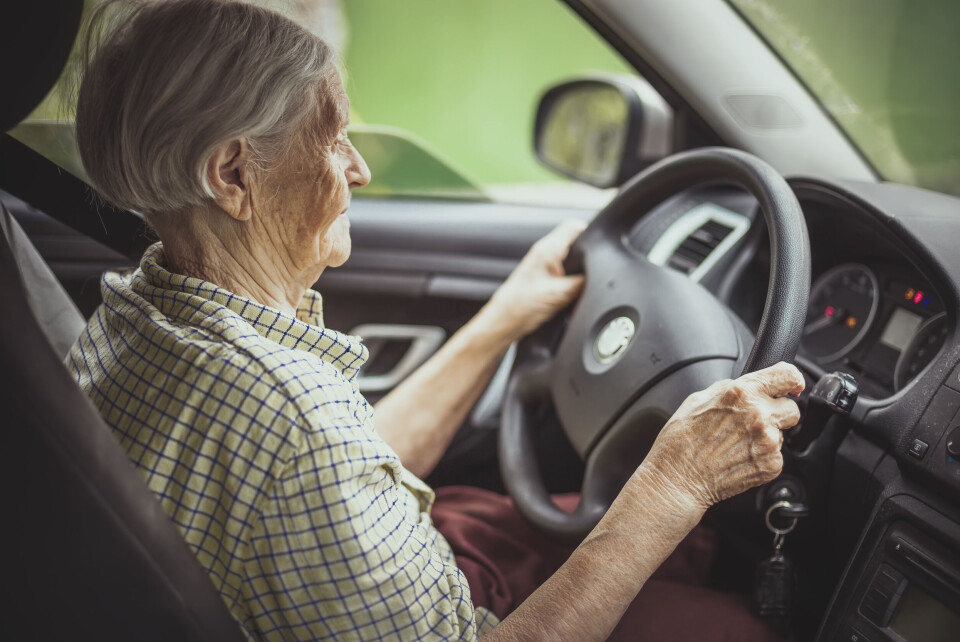-
Britons are the largest foreign community of second-home owners in Nouvelle Aquitaine
See which other departments in the region are popular with British nationals
-
Travellers risk extra costs under new Eurotunnel ticket rule
Some fare options are less flexible and less forgiving of lateness
-
May will be difficult month for train travel in France, warns minister
Two major train unions are threatening to strike and are ‘not willing to negotiate’, he says
Older drivers must pass medical tests to stay on French roads, says MP
Bruno Millienne wants people over 75 to have check-ups every five years to prove they are fit to keep driving

Drivers aged 75 and over in France should have a medical check and certificate to prove they are still safe on the roads, an MP has said.
Bruno Millienne, from the centre-right Mouvement Démocrate party, has brought a draft bill on the issue to the French parliament.
“Any holder of a driving licence aged 75 or over must provide a medical certificate issued by a doctor approved by the departmental prefecture, attesting to their full or partial ability to drive,” reads the draft legislation.
It then calls for a test to be repeated every five years, although it is not clear what the check would include or which doctors would be approved to carry them out.
The bill suggests this idea be trialled in several departments, including those with the highest accident rates and those that have the most accessible public transport.
Some high-profile accidents have brought this more into the spotlight recently, said Mr Millienne, including that of the French wheelchair tennis champion Pauline Déroulède, whose left leg was amputated after she was run over in 2018 by a man in his 90s who lost control of his vehicle.
“Some senior citizens continue to drive despite clearly impaired cognitive abilities, thereby endangering themselves and other road users,” said Mr Millienne.
He highlighted figures from road accident analysis reports from the Bulletins d'analyse des accidents de la circulation (BAAC).
“Drivers of passenger vehicles in the extreme age brackets - 18‑24 and 75 and over - are significantly more often allegedly responsible, with rates exceeding 75% in 2019 (77% and 82% respectively),” reads the draft bill.
“In addition to being the most responsible for road accidents, young and senior drivers are also the most vulnerable.
“In 2022, 50 people died on the roads for every 1 million inhabitants in metropolitan France. Again, it is both the youngest and the oldest who are the most affected: 108 deaths per million inhabitants among 18‑24-year-olds in 2022 and 88 deaths per million inhabitants among people aged 75 and over.”
Mr Millienne said that even if the bill is not passed it would at least “reopen the debate on the driving skills of senior citizens”.
“Making this medical check-up compulsory isn't ‘too dramatic’ either,” he said. “It’s doable [and] it's a question of their own protection and that of others. We need to do something as kind as possible, and see how medicine can define their [driving] capacity.”
In France, licences can be withdrawn as a penalty after a driving offence, and there is an official list of medical conditions that can lead to temporary or permanent licence revocation by prefects. However, there are no uniform medical tests for older people to ascertain whether they are fit to drive.
Read more: France bans Alzheimer’s patients from driving: Reaction
This is in contrast to some other European countries.
In the Netherlands, drivers over 75 must take a sight, hearing, and reflex test every five years to keep their licence; while in Ireland, all drivers over 70 undergo yearly medical examinations to continue driving.
Driving debate
The idea to introduce more checks on older drivers is frequently debated in France.
An accident in Berck (Pas-de-Calais) reignited the issue in April this year. Then, the 76-year-old driver reportedly confused the brake and accelerator pedals, and ploughed into a festival crowd, injuring a dozen people, including a woman who was left with life-threatening injuries.
And in 2021, a poll found that 75% of people in France would be in favour of a medical exam to enable older people to continue driving. Even 58% of people in the over-65 category said they would be in favour.
The survey also found that 79% of respondents felt that over-65s should be able to take a voluntary course to have their driving assessed by a professional. The majority of over-65s taking part in the survey agreed with this, with 69% in favour.
We asked readers for feedback on the topic last year after a petition from a French woman injured by a 92-year-old driver - who lost control of his vehicle in Paris - gained traction.
Yet, in 2019, France’s then-transport minister Elisabeth Borne - now the French prime minister - said she had ruled out the possibility of requiring older drivers to undergo a medical test, or for their driving licences to be restricted.
That decision came following an accident involving an 85-year-old driver that resulted in the death of a 15-month-old girl in Corrèze (Nouvelle-Aquitaine) in 2018.
Mr Millienne’s latest proposal comes as the government has made several changes to licences in recent years.
This includes reducing the minimum driving age to 17, announcing the digitisation of licences, and the automatic confiscation of a licence from anyone found to be driving under the influence of alcohol or drugs.
Your view
What do you think? Should France introduce regular medical tests for older drivers? Or would it be better to do more to tackle speeding and drink-driving?
Let us know your thoughts via news@connexionfrance.com
Related articles
Should older drivers in France face medical tests to stay on the road?
Should older drivers in France be required to take a medical test?
























